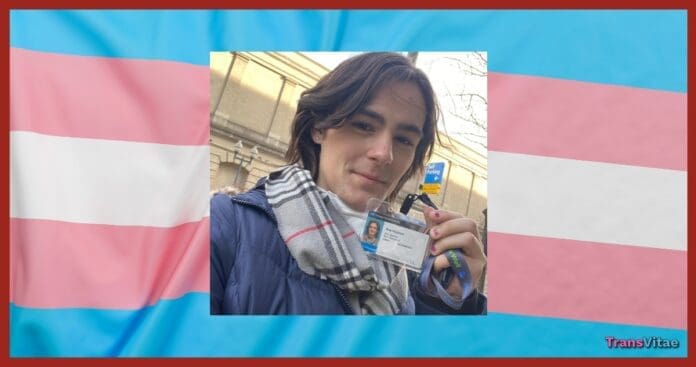Trigger Warning: This article discusses suicide, transphobia, and examples of hateful online rhetoric directed at transgender people. Some language quoted from social media is offensive and may be distressing to readers.
In the days since WBEZ and the Chicago Sun-Times published their deeply moving investigation into the August 7, 2024 death by suicide of Ava Hudson, a 27-year-old transgender CTA bus driver, the response on social media has devolved into a disturbing spectacle of transphobia on full display.
The article painted a sobering picture. Ava, a trans woman full of hopes for independence and stability, found herself battling an institutional culture that misgendered her repeatedly. Supervisors and coworkers used “he” and “him” on official documents and forced her to wear a boxy, masculine uniform that fueled daily discomfort. Despite a strong anti-discrimination policy, the CTA’s apparent refusal to meaningfully investigate what may have driven Ava to despair, especially given that she was in uniform before a shift, added a painful layer of negligence.
Instead of responding with compassion or calls for reform, platforms like Twitter and Facebook have been flooded with grotesque rhetoric. In some corners, trolls gleefully insist “gender identity crisis” somehow excuses or dismisses Ava’s death. Others doubled down on vile stereotypes, with threads arguing that misgendering is “biologically correct” and that systemic transphobia is simply a difference of opinion. A handful of self-styled “feminists,” known as TERFs, mocked Ava’s pain, insisting that her transition had nothing to do with her emotional turmoil and claiming that mental health struggles in the trans community are exaggerated.
One user wrote, “Don’t blame CTA or anyone else. This is a mental health issue, nothing to do with her being trans,” while another blatantly questioned, “Why even accommodate gender-identity special cases on the job? Let natural biology speak.” These kinds of comments strip away a complex, human tragedy and turn it into a spectacle of derision.
For transgender individuals, seeing these comments can be retraumatizing. The hateful chorus fails to recognize Ava’s humanity: the way she smiled in January 2024 when flashing her CTA badge, envisioning financial stability and affirmation through her work; the joy she felt when she finally booked that long-coveted electrolysis session and scored a salary bump, putting painful transition costs behind her; and the gut-wrenching reality that she took the train not as a bus driver on her way to a shift, but as someone who had lost hope.
Still, there has been a powerful countercurrent. Trans advocates, family members, friends, and allies are pushing back, reminding the world that Ava’s death should provoke systemic introspection, not ridicule. Many are sharing her story to spotlight how easily trans people can be worn down by everyday invalidation when institutions fail to uphold their policies. Mental health professionals and LGBTQ+ organizations are urging for better training at workplaces that serve the public, especially in positions where uniformed staff are constantly visible and vulnerable to misgendering.
To trans people, their families, and allies: understand that spite and ignorance often thrive in the absence of empathy, but you are not alone. This tragedy is not your failing. It is a call for kindness, for compassionate workplaces, and for communities that affirm every identity with dignity.
If anything from Ava’s story echoes in your heart, whether it is feeling unseen, misgendered, or unsupported, know that help exists. You can reach out to the Suicide & Crisis Lifeline at 988, or access LGBTQ+ friendly support through the Trevor Project’s 24/7 chat and phone services.


